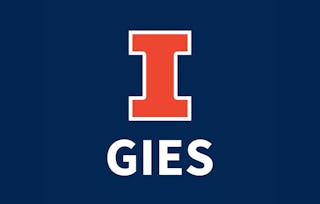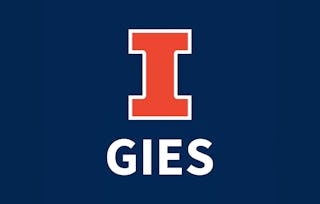In this course, you will explore how to use accounting to allocate resources and incentivize manager and employee behaviors with these resources. You will also learn how financial and non-financial accounting information facilitates strategic performance measurement and how to integrate this information to continuously improve strategy.

Managerial Accounting: Tools for Facilitating and Guiding Business Decisions
6 days left! Gain next-level skills with Coursera Plus for $199 (regularly $399). Save now.

Managerial Accounting: Tools for Facilitating and Guiding Business Decisions
This course is part of Value Chain Management Specialization

Instructor: Gary Hecht, Ph.D.
37,079 already enrolled
Included with
(642 reviews)
What you'll learn
Prepare a master budget and its key components.
Evaluate capital investments via a variety of measures.
Calculate, interpret, and investigate variances.
Compute and interpret financial performance measures.
Skills you'll gain
Details to know

Add to your LinkedIn profile
1 quiz, 20 assignments
See how employees at top companies are mastering in-demand skills

Build your subject-matter expertise
- Learn new concepts from industry experts
- Gain a foundational understanding of a subject or tool
- Develop job-relevant skills with hands-on projects
- Earn a shareable career certificate

There are 4 modules in this course
In this module, you will become familiar with the course, your instructor, your classmates, and our learning environment. Decisions are at the heart of all organizations. In this module, you will also explore the nature and role of relevant information in common business decisions, and how such information facilitates these decisions and helps managers and employees avoid common pitfalls. You will also consider how the financial perspective adopted by accountants complements other, qualitative perspectives.
What's included
18 videos9 readings1 quiz5 assignments1 peer review1 plugin
After establishing goals, setting targets, and the budget, upper management uses variance analysis to compare, assess, and investigate differences between actual and expected performance. In this module, you will learn how upper management uses variance analysis to motivate and monitor managers and employees, how to perform variance analysis on any aspect of the organization, and ultimately understand the power of this important tool for planning and control.
What's included
13 videos2 readings5 assignments1 peer review
Accountants help implement, communicate, and evolve organizational strategy via the information they provide to owners, managers, and employees. Specifically, they help plan, monitor, and control decisions via the performance measurement, evaluation, and compensation system. In this module, you will explore many aspects of this important system, including decentralization, financial and non-financial performance measurement, strategic performance measurement systems, and subjective performance evaluation.
What's included
13 videos2 readings4 assignments
At the heart of an organization’s planning and control function is its budget. In this module, you will explore the purpose of budgeting, the role of managers and employees in budgeting, and related implications. You will also develop an organization’s budget, ultimately understanding the iterative nature among the budget’s key components: the operations, financing, and capital investments budgets.
What's included
26 videos4 readings6 assignments1 plugin
Earn a career certificate
Add this credential to your LinkedIn profile, resume, or CV. Share it on social media and in your performance review.
Build toward a degree
This course is part of the following degree program(s) offered by University of Illinois Urbana-Champaign. If you are admitted and enroll, your completed coursework may count toward your degree learning and your progress can transfer with you.¹
Instructor

Offered by
Explore more from Finance
 Status: Free Trial
Status: Free TrialUniversity of Illinois Urbana-Champaign
 Status: Free Trial
Status: Free TrialUniversity of Illinois Urbana-Champaign
 Status: Preview
Status: PreviewUniversity of Virginia
 Status: Free Trial
Status: Free TrialUniversity of Illinois Urbana-Champaign
Why people choose Coursera for their career




Learner reviews
642 reviews
- 5 stars
77.41%
- 4 stars
17.13%
- 3 stars
2.80%
- 2 stars
0.93%
- 1 star
1.71%
Showing 3 of 642
Reviewed on Jun 27, 2021
Great course to learn about the fundamentals of managerial accounting and how it is used in real world problems.
Reviewed on Sep 20, 2020
It was a great learning experience for me. The course is well designed and helps to improve personal skills.
Reviewed on Jul 1, 2020
Appreciate the effort is taken for formulating the course which is very interesting to learn

Open new doors with Coursera Plus
Unlimited access to 10,000+ world-class courses, hands-on projects, and job-ready certificate programs - all included in your subscription
Advance your career with an online degree
Earn a degree from world-class universities - 100% online
Join over 3,400 global companies that choose Coursera for Business
Upskill your employees to excel in the digital economy
Frequently asked questions
Once you enroll for a Certificate, you’ll have access to all videos, quizzes, and programming assignments (if applicable). If you choose to explore the course without purchasing, you may not be able to access certain assignments.
You will be eligible for a full refund until 2 weeks after your payment date. You cannot receive a refund once you’ve earned a Course Certificate, even if you complete the course within the 2-week refund period.
Yes! Coursera provides financial aid to learners who would like to complete a course but cannot afford the course fee. To apply for aid, select "Learn more and apply" in the Financial Aid section below the "Enroll" button. You'll be prompted to complete a simple application; no other paperwork is required.
More questions
Financial aid available,

